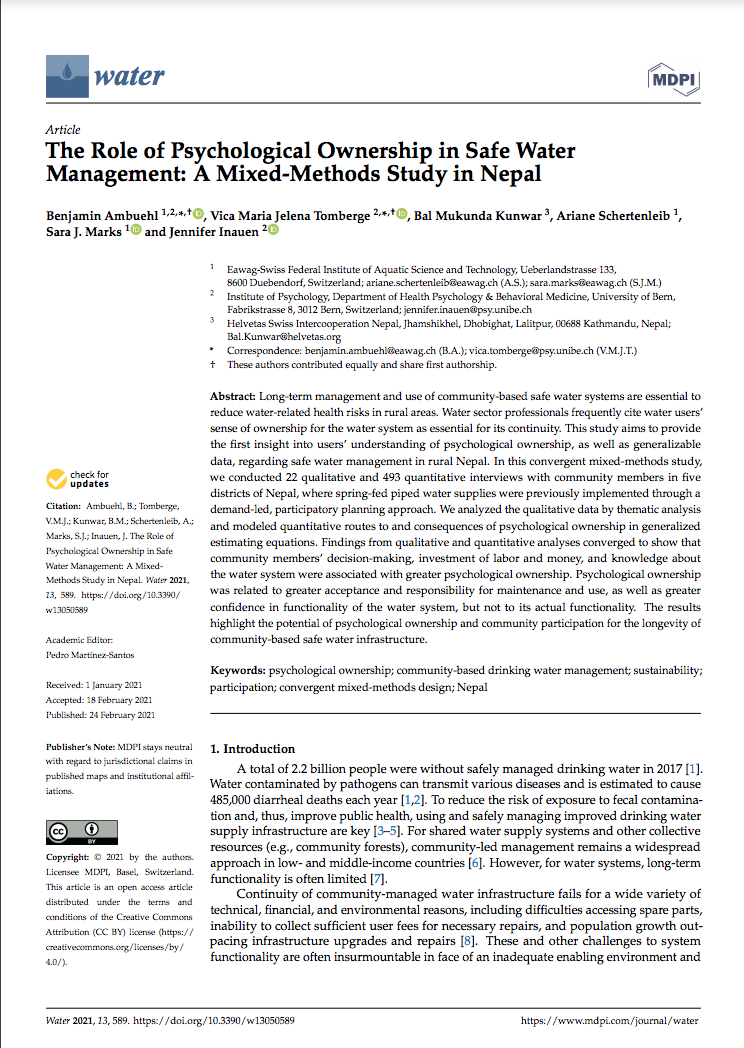Authors: Benjamin Ambuehl, Vica Maria Jelena Tomberge, Bal Mukunda Kunwar, Ariane Schertenleib, Sara J. Marks and Jennifer Inauen
Long-term management and use of community-based safe water systems are essential to reduce water-related health risks in rural areas. Water sector professionals frequently cite water users’ sense of ownership for the water system as essential for its continuity. This study aims to provide the first insight into users’ understanding of psychological ownership, as well as generalizable data, regarding safe water management in rural Nepal.
In this convergent mixed-methods study, the authors conducted 22 qualitative and 493 quantitative interviews with community members in five districts of Nepal, where spring-fed piped water supplies were previously implemented through a demand-led, participatory planning approach. Findings from qualitative and quantitative analyses converged to show that community members’ decision-making, investment of labor and money, and knowledge about the water system were associated with greater psychological ownership. Psychological ownership was related to greater acceptance and responsibility for maintenance and use, as well as greater confidence in functionality of the water system, but not to its actual functionality.

